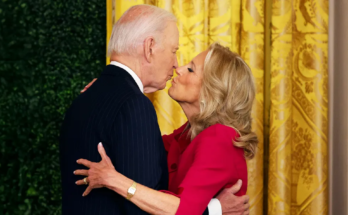JAN. 6 REPORT: A report said that the FBI failed to canvass informants across its field offices, which might have helped it prepare for what happened in Washington
AP, WASHINGTON
The FBI should have done more to gather intelligence before the riot at the US Capitol on Jan. 6, 2021, a report by the US Department of Justice’s inspector general’s office said on Thursday.
The report comes nearly four years after rioters stormed the building following then-US president Donald Trump’s 2020 election loss to now-US President Joe Biden.
The report offered a mixed assessment of the FBI’s performance in the run-up to the riot, crediting it for preparing for the possibility of violence and for trying to identify known “domestic terrorism subjects” who planned to come to Washington that day.

FBI Director Christopher Wray testifies before the US House of Representatives Judiciary Committee on Capitol Hill in Washington on July 24.
Photo: AFP
However, it said that the FBI, in an action the now-deputy director described as a “basic step that was missed,” failed to canvass informants across all 56 of its field offices for any relevant intelligence.
That was a step “that could have helped the FBI and its law enforcement partners with their preparations in advance of January 6,” it said.
The report found that 26 FBI informants were in Washington for election-related protests on Jan. 6, including three who had been tasked with traveling to the city to report on others who were potentially planning to attend the day’s events.
Four of the informants entered the Capitol without having been authorized to do so by the FBI, or to break the law or encourage others to do so, the report said.
Many of the 26 informants provided the FBI with information before the riot, but it “was no more specific than, and was consistent with, other sources of information” the FBI had acquired from other sources, it said.
The FBI said in a letter responding to the report that it accepts the inspection general’s recommendation “regarding potential process improvements for future events.”
The review was launched days after the riot as the FBI faced questions over whether it had missed warnings signs or had adequately disseminated intelligence it had received, including a Jan. 5, 2021, bulletin prepared by the FBI’s Norfolk, Virginia, field office that warned of the potential for “war” at the Capitol.
The inspector general found that the information in that bulletin was broadly shared.
FBI Director Chris Wray, who announced this week his plans to resign at the end of Biden’s term next month, has defended his agency’s handling of the intelligence report.
Wray told lawmakers in 2021 that the Norfolk field office bulletin was disseminated though the joint terrorism task force, discussed at a command post in Washington and posted on an Internet portal available to other law enforcement agencies.
“We did communicate that information in a timely fashion to the Capitol Police and the [Metropolitan Police Department] in not one, not two, but three different ways,” Wray said at the time.
Separately, the watchdog report said that the FBI’s New Orleans field office was told by a source between November 2020 and early January 2021 that protesters were planning to station a “quick reaction force” in northern Virginia “in order to be armed and prepared to respond to violence that day in [Washington] DC, if necessary.”
That information was shared with the FBI’s Washington Field Office, members of intelligence agencies and federal law enforcement agencies the day before the riot, the inspector general found.
However, there was no indication the FBI told northern Virginia police about the information, the report said.
An FBI official told the inspector general there was “nothing actionable or immediately concerning about it.”
A cache of weapons at a Virginia hotel as part of a “quick reaction force” was a central piece of the Justice Department’s seditious conspiracy case against Oath Keepers leader Stewart Rhodes and other members of the group.
US Representative Clay Higgins recently said on a podcast that agents pretending to be Trump supporters were responsible for instigating the violence.
Former US representative Matt Gaetz in 2021 sent a letter to Wray asking how many undercover agents or informants were at the Capitol on Jan. 6 and if they were “merely passive informants or active instigators.”
Wray refused to say during a congressional hearing last year how many of the people who entered the Capitol and surrounding area on Jan. 6 were either FBI employees or people with whom the FBI had made contact, but added that the “notion that somehow the violence at the Capitol on January 6 was part of some operation orchestrated by FBI sources and agents is ludicrous.”



